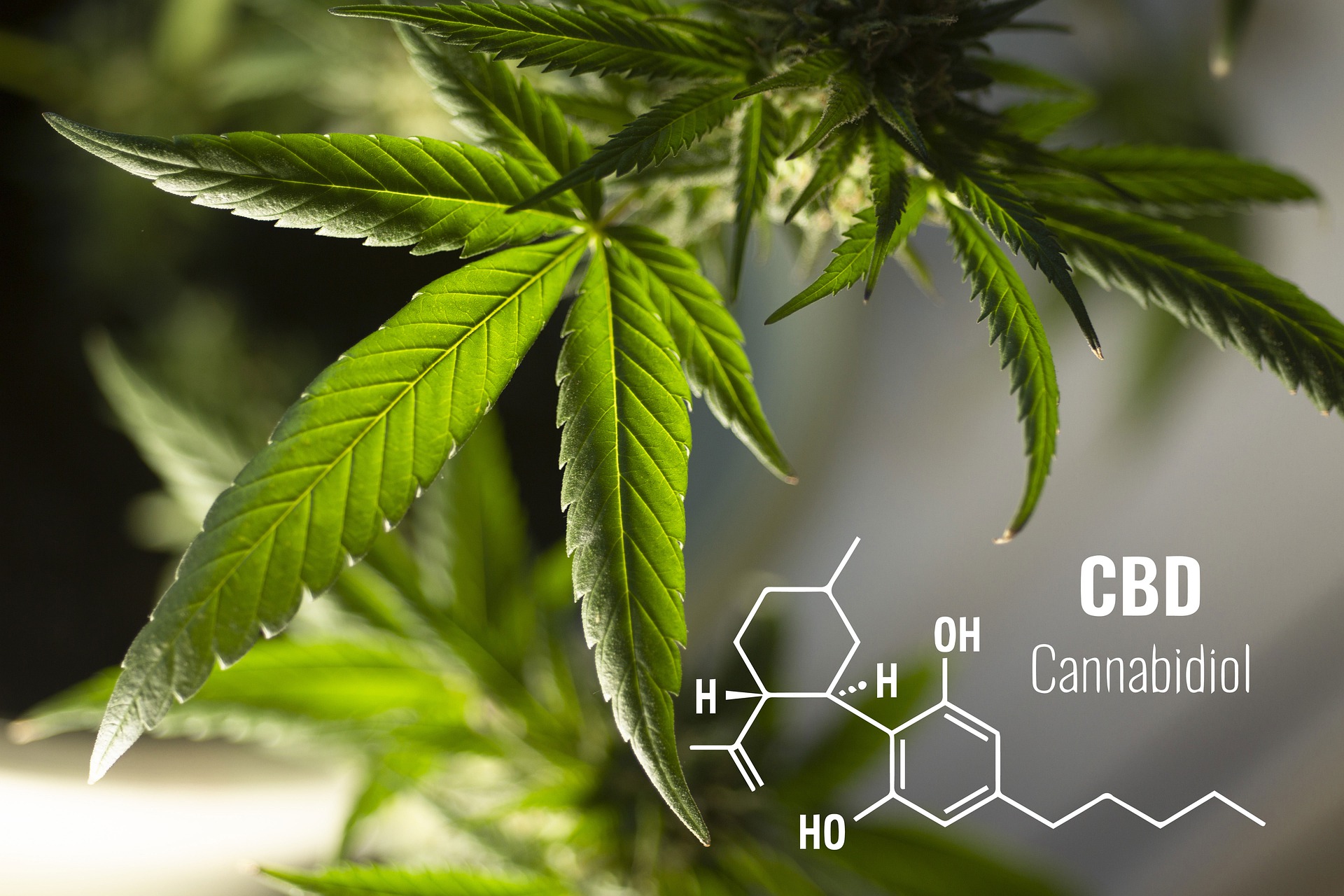CBD is a diverse chemical compound. It has a broad range of benefits to human and mammalian well being. But how is this possible? A magical piece of mammalian organisms is the Endocannabinoid System (ECS) which is the key to understanding the role of cannabis in our body. In part 1 of this series, we covered this system in-depth. Now we are going to go deeper into the intricacies of how it works.
Receptors Are Like The 5 Senses…
Contained within the ECS are a series of receptors. One of these receptors is known as cannabinoid receptor type 1 (CB1). Receptors such as CB1 are key components in all parts of our nervous system. They are akin to our senses. Without sight, hearing, taste, touch and smell, we would not be able to interact and experience the world around us. From our ability to sense our surroundings, we are capable of relating and responding to them. The receptors in our nervous system, such as CB1, acts in a similar way. It helps our nervous system to relate and respond to what is occurring within and around our bodies.
Endocannabinoids and cannabinoids are the sensory inputs to our ECS. They tell it what’s happening. A lack of these compounds, or an abundance of them, will inform our ECS how to operate. Depending on the cannabinoid, their effects will vary. For example, some compounds will bind to our receptors like a key in a lock, such as THC. Others, such as CBD, act more passively. They influence the receptors without binding to them.
Cracking The Mystery of CB1
CB1 is largely found within the Central Nervous System (CNS). CB1 is of the “G protein-coupled” class, and surprisingly is one of the most plentiful G-protein-coupled receptors found in the brain. [1] The receptors act as receivers for information in the form of light, energy, peptides, lipids, sugars and protein. They are crucial components for the brain to function. It is no wonder CBD and THC have been found to positively influence neurological and mental illness [2]. Interesting to note, is that although cannabinoids influence CB1, the main activators are endocannabinoids, which are those that are body produces independently [1].
Researches have found that CB1s are densely concentrated in different major areas of the brain: the striatum, cerebellum, hippocampus, amygdala, neocortex, basal ganglia and hypothalamus. These areas are responsible for moderating a variety of behaviors, such as decision making, sensory and motor response, emotional reactions, memory, and learning, as well as numerous homeostatic processes throughout the body. Because CB1 and the ECS are integrated into a diverse range of neurological functions, the intricacies of CBD and THC influencing our mental and neurological well being are almost limitless. Due to this limitless potential, study becomes difficult for pin pointing detailed and specific functions of our ECS, however general influences of this system are being discovered regularly.
CB1, Obesity and Eating Disorders
Obesity is now becoming a serious global health issue. People are seeking answers. Some of those answers may be found in our ECS. As we learned above, CB1s are found throughout various and critical areas of the brain. An important region is the hypothalamus, because it is responsible for regulating appetite and cravings. Imbalanced function in the hypothalamus can lead to eating disorders and obesity. This is because the foods we crave are generally addictive and unhealthy in large amounts. If our hypothalamus is out of balance, it will not properly inform our stomach when it is full, and when it is time to stop eating. Furthermore, inflammation in the hypothalamus can result in increased fat storage and body mass, due to leptin and insulin resistance [3].
This all leads to an interesting conversation, which is how we can work with our ECS and CB1s to help those suffering from obesity and eating disorders. This research is in its infancy, however it could very well help us find effective treatment for these disorders. Obesity is generally rooted in an unhealthy emotional connection to food. Many people suffering from obesity simultaneously suffer from eating disorders, which are linked to depression, anxiety and other mental illness. As we know, many people suffering from mental illness have found tremendous relief from supplementing with CBD [4].
To Summarize…
Cannabinoid Receptor type 1 is found throughout our endocannabinoid system, with the densest concentrations found within the brain and the central nervous system. It acts as an input for information, and helps with a wide range of homeostatic functions throughout the body. Through CB1, and the ECS, we are able to observe and study the intricacies of how cannabis effects our mental, emotional and physical well being, and why it can impact imbalances such as obesity.
Obesity and eating disorders are a huge topic, and this is just scratching the surface. Sometimes we need to take health in our own hands, rather than waiting for studies to confirm what we may intuit. Much of this is based on speculation, and needs further research, however it is important to be creative and open to infinite possibilities when we are in the scientific world. CBD very well could help those suffering from obesity and eating disorders, and a broad range of other myserty illnesses based on the presence of CB1s and the ECS.
Patriot Hemp
At Patriot Hemp, our mission is to provide high quality CBD oil to those who can benefit from it. We focus particularly on government employees, veterans, people suffering from PTSD, military personnel, nurses and those in positions of service. That is why we offer several CBD products that contain zero THC. This means you can enjoy all the benefits of CBD without the risk of THC. Find our products and more at https://patriotcbd.org/
[1] Bradley E. Alger (2013) Getting High on the Endocannabinoid System
[2] Orrin Devinsky, Maria Roberta Cilio, et. Al (2014) Cannabidiol: Pharmacology and potential therapeutic role in epilepsy and other neuropsychiatric disorders
[3] Velloso L.A., Araújo E.P., de Souza C.T. (2008) Diet-Induced Inflammation of the Hypothalamus in Obesity
[4] Jose Alexandre S Crippa, Guilherme Nogueira Derenusson (2010) Neural Basis of anxiolytic effects of cannabidiol (CBD) in generalized social anxiety disorder: a preliminary report






